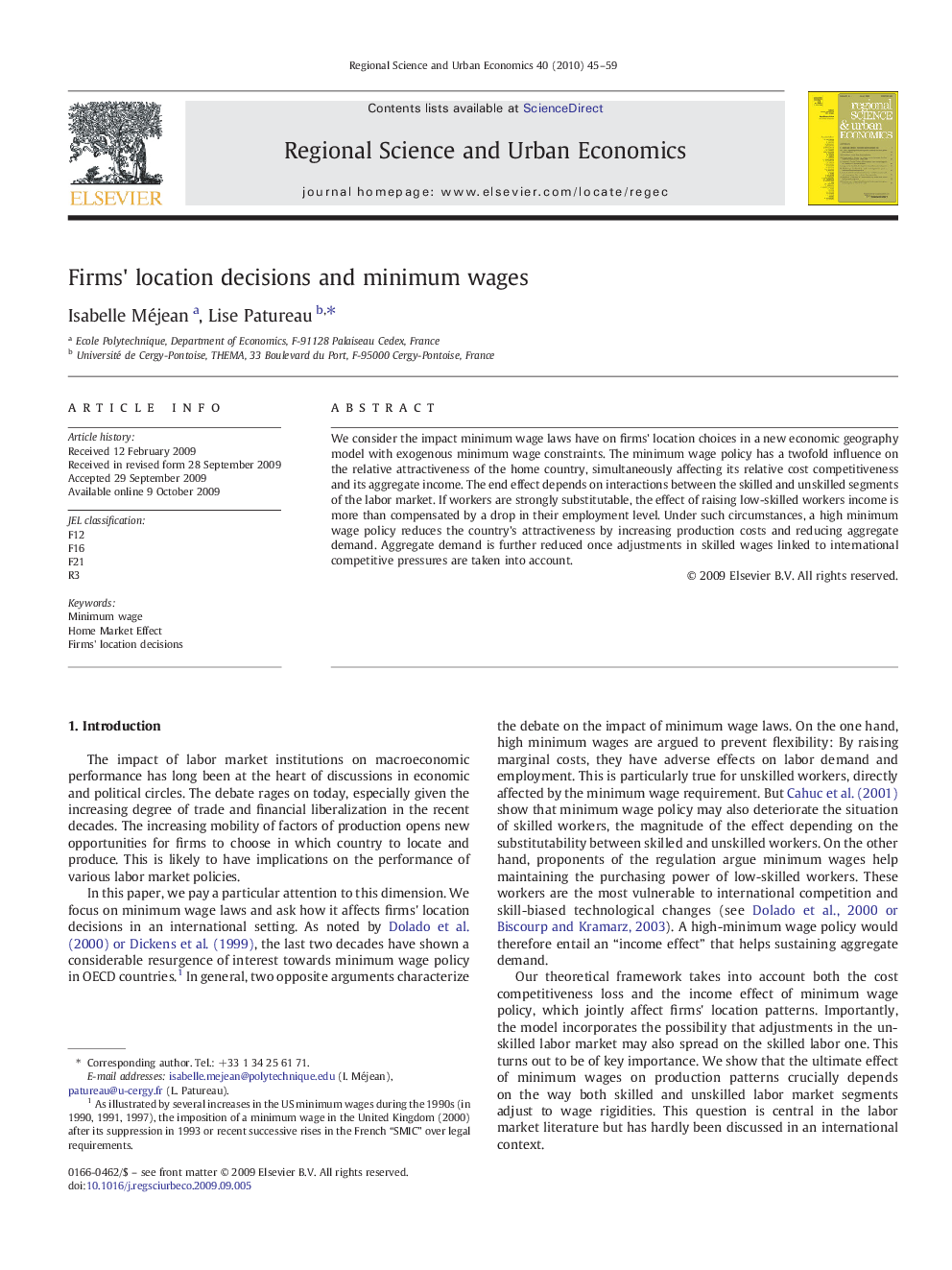| Article ID | Journal | Published Year | Pages | File Type |
|---|---|---|---|---|
| 983836 | Regional Science and Urban Economics | 2010 | 15 Pages |
We consider the impact minimum wage laws have on firms' location choices in a new economic geography model with exogenous minimum wage constraints. The minimum wage policy has a twofold influence on the relative attractiveness of the home country, simultaneously affecting its relative cost competitiveness and its aggregate income. The end effect depends on interactions between the skilled and unskilled segments of the labor market. If workers are strongly substitutable, the effect of raising low-skilled workers income is more than compensated by a drop in their employment level. Under such circumstances, a high minimum wage policy reduces the country's attractiveness by increasing production costs and reducing aggregate demand. Aggregate demand is further reduced once adjustments in skilled wages linked to international competitive pressures are taken into account.
